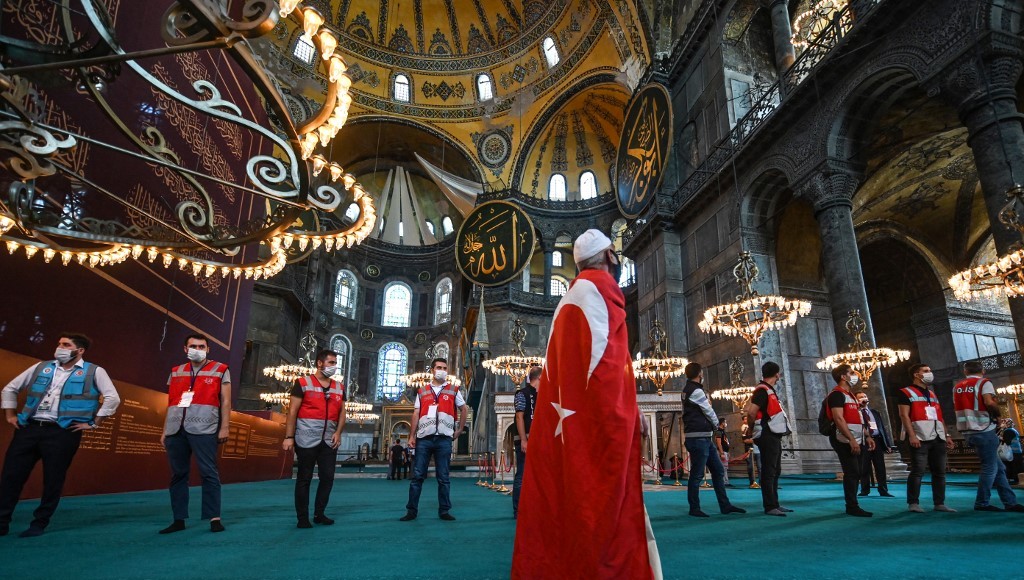In Turkey, 92.3 percent of the population identifies as Muslim, while 5.9 percent classify themselves as deists or atheists, the Kronos news website reported on Tuesday, citing research recently conducted by the Ankara Institute.
Composed of academics, former members of parliament, senior advisors to Turkish prime ministers and ministers, analysts from leading think tanks, NGO executives and media professionals, the institute conducts research on political, social and economic developments in Turkey, Eurasia and the Middle East.
The results of the “Perception of Religiousness in Turkey” research, prepared by Hatem Ete and Abdullan Yargı, revealed that the perception that Turkey is a “99 percent Muslim country” does not reflect reality.
The research found that only 92.3 percent of people in Turkey identify as Muslims, while 3.2 percent identify as deists, who believe in God but not religion, and 2.7 percent as atheists, who don’t believe in God.
According to the research, 100 percent of members of the ruling Justice and Development Party (AKP) and its ally, the far-right Nationalist Movement Party (MHP), identify as Muslims, while it falls to 96 percent in the nationalist opposition İYİ (Good) Party and to 78 percent in the main opposition Republican People’s Party (CHP) and the pro-Kurdish Peoples’ Democratic Party (HDP).
Among participants from the CHP, 10 percent said they were deists and 7 percent said they were atheists. These figures were 9 percent and 8 percent, respectively, among respondents supporting the HDP.
When it comes to the existence of God, 86 percent of the participants expressed absolute certainty. Seven percent mentioned they believe in God while harboring some doubts, and 2.5 percent admitted to not being sure about God’s existence. The remaining 3 percent declared that they do not believe in God.
While 46 percent of participants said they did not agree with the notion “It doesn’t matter what or how I believe as long as I am moral,” 37 percent expressed agreement with this idea.
The participants were also asked how they would describe themselves in terms of religiosity. While 62 percent said they were “someone trying to fulfill the requirements of [their] religion,” 22 percent said they were “quite religious” and 6 percent stated that they were “not religious at all.”
Seventy-six percent of participants also expressed a desire for their children to be religious, while 12 percent indicated that they didn’t care whether their children were religious or not and 9 percent expressed a lack of desire for their children to be religious.
Sixty-two percent of participants were found not to support the granting of legal status to different sexual orientations, and a significant majority (72 percent) was “opposed to premarital sexual relations.”
Fifty-three percent of participants said they did not agree with the statement “I don’t mind political parties using religious rhetoric,” while 41 percent of respondents said they didn’t trust Turkey’s Religious Affairs Directorate (Diyanet) and 44.5 percent stated that they didn’t have faith in religious opinion leaders.
It is claimed by many that the AKP and the people who claim they are religious have deterred people from religion in Turkey.
Pro-government columnist Yusuf Kaplan said in his Monday article for the Yenişafak daily that blaming those who identify as deists and atheists is “very wrong,” adding that if there has to be someone to blame for the situation, it is the people who claim to be religious.
“The root cause of the issue lies in the problems with both submission and representation. Religious individuals, by misrepresenting religion to the extent that it disappoints secular individuals … are leading to society’s alienation from religion and the spread of deism and atheism in the country,” Kaplan said.

